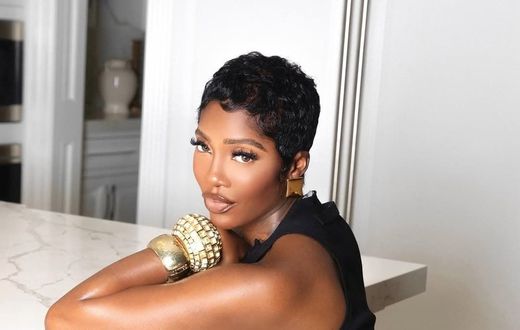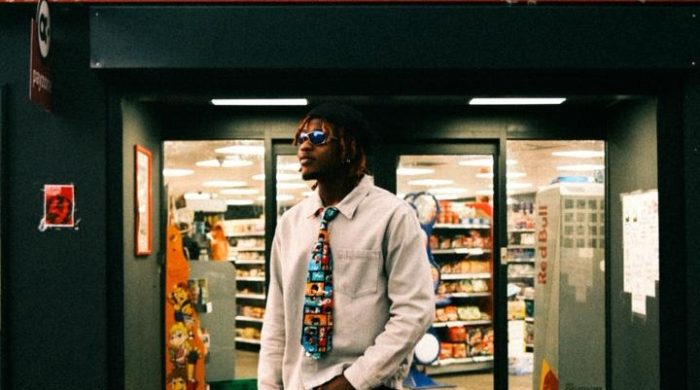Tiwa Savage, one of Nigeria’s brightest music stars and a dominant force in the Afrobeats genre, has shared her reservations about being called the “Queen of Afrobeats”—a label frequently attached to her by fans and media alike. Despite her undeniable influence and chart-topping success, the superstar revealed recently that she is uncomfortable with such a singular crown, suggesting the title does not fully capture the number and quality of female voices shaping the genre today.
The ‘All Over’ and ‘Kele Kele Love’ hitmaker expressed her perspective in a frank conversation with Apple Music’s Ebro, according to the interview aired earlier this week. Tiwa Savage’s words have since sparked lively discussions across Nigeria and West Africa, with many debating who truly deserves the Afrobeats “royalty” status—or whether the title should even exist in the first place.
In her interview, Tiwa was open about why she’s hesitant to accept the title outright. While she acknowledged the honor, she noted that being called the ‘Queen’ carries a burden of responsibility and expectation that she finds daunting. She explained, “I appreciate the recognition, but to be honest, I don’t feel completely comfortable with that title.” She went on to explain that she believes Afrobeats is a movement shaped by many, not just a few at the top.
A mother and seasoned performer herself, Tiwa used the platform to spotlight the collective power of female artists within Afrobeats, acknowledging that numerous others have contributed tirelessly to the genre’s rise. “I’m not the only woman making impact. We have so many Queens—Yemi Alade, Simi, Niniola, Ayra Starr—the list goes on,” she stated, putting their accomplishment at the forefront of her response.
“Yeah, they call me the Queen of Afrobeats, but there are a lot of us that are Queens,” Tiwa explained, making it clear that she sees herself as part of a larger sisterhood rather than a sole figurehead.
The singer argued that the ‘Queen’ moniker does not accurately reflect the diverse talents within the genre. “It minimizes the collective effort,” she noted in the interview, referencing artistes who have advanced Afrobeats both at home and on global platforms. This comment resonates strongly with Nigerian and African fans, many of whom see the genre’s growth as a community achievement rather than the work of one individual.
According to music analyst Chinedu Okechukwu based in Lagos, “Tiwa’s humility is remarkable. She’s right—Afrobeats’ strength lies in its diversity, and crediting it to one person is both unfair and inaccurate.” Local music fan and blogger Esiowu Akpan from Accra echoes this view: “We love her, no doubt, but Afrobeats is bigger than any one person, male or female. Ghanaian and Nigerian artists have all played a role.”
Tiwa Savage noted that although her status as one of Nigeria’s most influential female artists has likely contributed to the persistent use of the title, she feels uneasy when it comes to embracing or owning the label exclusively. “I understand where it comes from,” she continued, “but honestly, I don’t think the title should belong to me alone.”
She further explained the personal dilemma in an introspective moment of the interview, stating that fully embracing the label would require her to constantly exhibit a high level of humility—something she finds hard to reconcile with, especially when she questions whether the tag makes sense in the context of such a vibrant collective. “To keep accepting that moniker means I always have to keep myself in check, to be ever humble, and it just doesn’t align for me. So I’d rather let go of the title,” Tiwa said, remaining unswayed by pressure to claim the crown.
“Personally, I don’t like that tag; it’s uncomfortable because I feel like if I start accepting it, I need to be humble, and secondly, it doesn’t make sense to me. So, I don’t accept it,” she concluded, in what many have interpreted as a testament to her commitment to authenticity.
The debate about music royalty is not new in Nigeria’s entertainment scene. While official titles such as ‘Queen of Afrobeats’ are not formally bestowed, the success achieved by artists like Tiwa Savage often results in fans and commentators assigning them such recognition. Since scoring her first major hit in 2010 with ‘Kele Kele Love,’ Tiwa has delivered multiple chart-topping songs and earned international collaborations, making her a trailblazer for African women in music and reportedly garnering over 50 award nominations to date (according to Official Charts and music industry reports).
For many young Nigerian and African women, Tiwa Savage is a source of inspiration—a symbol of what can be achieved through talent, determination, and resilience. Yet, analysts highlight that the present discourse about her “Queen” title highlights the shifting landscape of Afrobeats and the increasing visibility of female voices. In recent years, rising stars like Ayra Starr (the first female artist to top Nigeria’s Apple Music chart in over a decade), Tems (winner at the 2023 Grammy Awards), and Ghana’s Efya have added their own chapters to this story.
Music industry stakeholders also stress the importance of collective growth. “Let’s celebrate all the female artists without narrowing the focus to one,” says Adaobi Onuoha, a women-in-music advocate based in Abuja. “It’s a movement, and we all move together.” She noted that recognizing the achievements of multiple artists offers more opportunities for growth, funding, and wider audience acceptance.
The reluctance of Tiwa Savage to accept a singularly royal title mirrors discussions globally about labeling female artists, with similar debates surrounding stars in genres like hip-hop and R&B. According to international reports, musicians such as Beyoncé and Rihanna have also at times deflected such titles, citing the diversity and depth of talent that shape each musical movement.
Despite her apparent discomfort, fans and industry experts continue to laud Tiwa Savage for her consistency and ability to break barriers. “There’s no doubt about her influence,” says Abuja-based radio host Tunde Adebayo. Pointing to hits like ‘All Over,’ ‘Somebody’s Son,’ and collaborations with global acts such as Sam Smith and Brandy, he adds: “She’s opened doors for Nigerian women in music, and that will always be respected.”
Questions persist about whether Afrobeats—and especially its female stars—receive enough support from stakeholders, label executives, and event organizers in West Africa. Industry statistics show that while women represent around 30% of headline artists in major Nigerian music festivals, they still face challenges in terms of pay, sponsorship, and access to international platforms (see Music in Africa for latest reports).
For now, Tiwa Savage’s insistence on inclusivity and humility has struck a chord. As more female artists find their voices and listeners become more discerning, the title of “Queen” may matter less than the collective glory and visibility the genre now enjoys on the world stage.
As Afrobeats continues to conquer mainstream music markets in the UK, US, and across Africa, the focus is expanding from individuals to the movement itself. With stars like Tiwa Savage speaking openly about the complexities of recognition, the genre is poised to showcase the strength and creativity of all its contributors—regardless of gender or title.
Do you agree with Tiwa Savage’s stance on the ‘Queen of Afrobeats’ title? Should recognition be more inclusive in Nigeria’s entertainment industry, or do titles help inspire the next generation? Share your opinion and let your voice be heard in the comments below. For updates on Afrobeats, local entertainment, and more, follow us on our social platforms!
Have a story, hot gist, or unique perspective to share with our community? We’d love to feature your voice! Reach out to us at story@nowahalazone.com to get your story published or discuss story sales. For support and questions, email us at support@nowahalazone.com. Let’s keep the conversation going on Facebook, X (Twitter), and Instagram — your opinion and stories matter!










